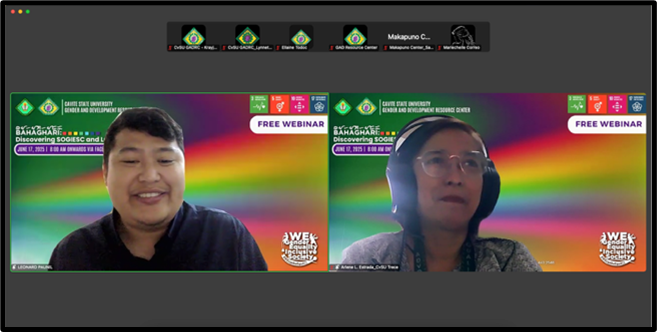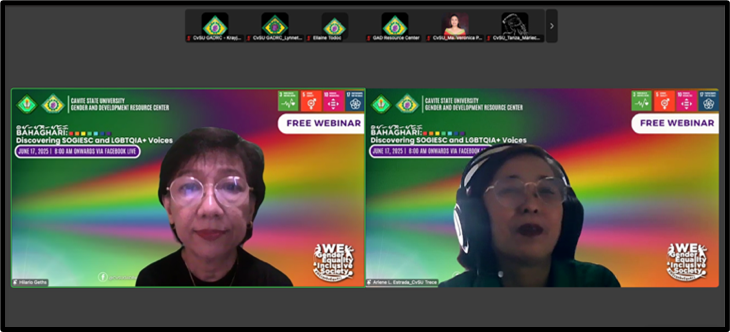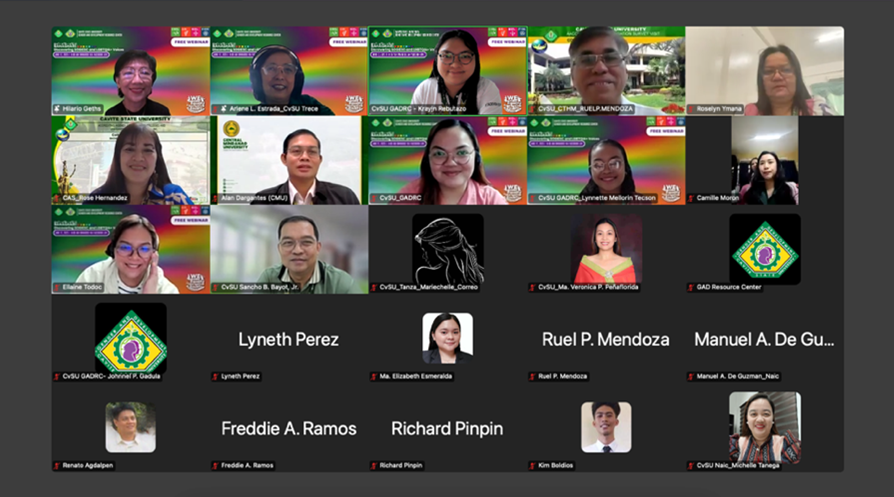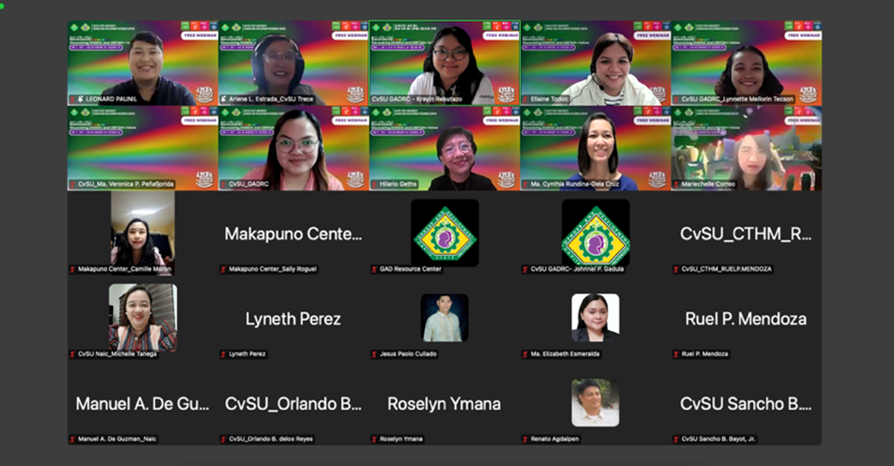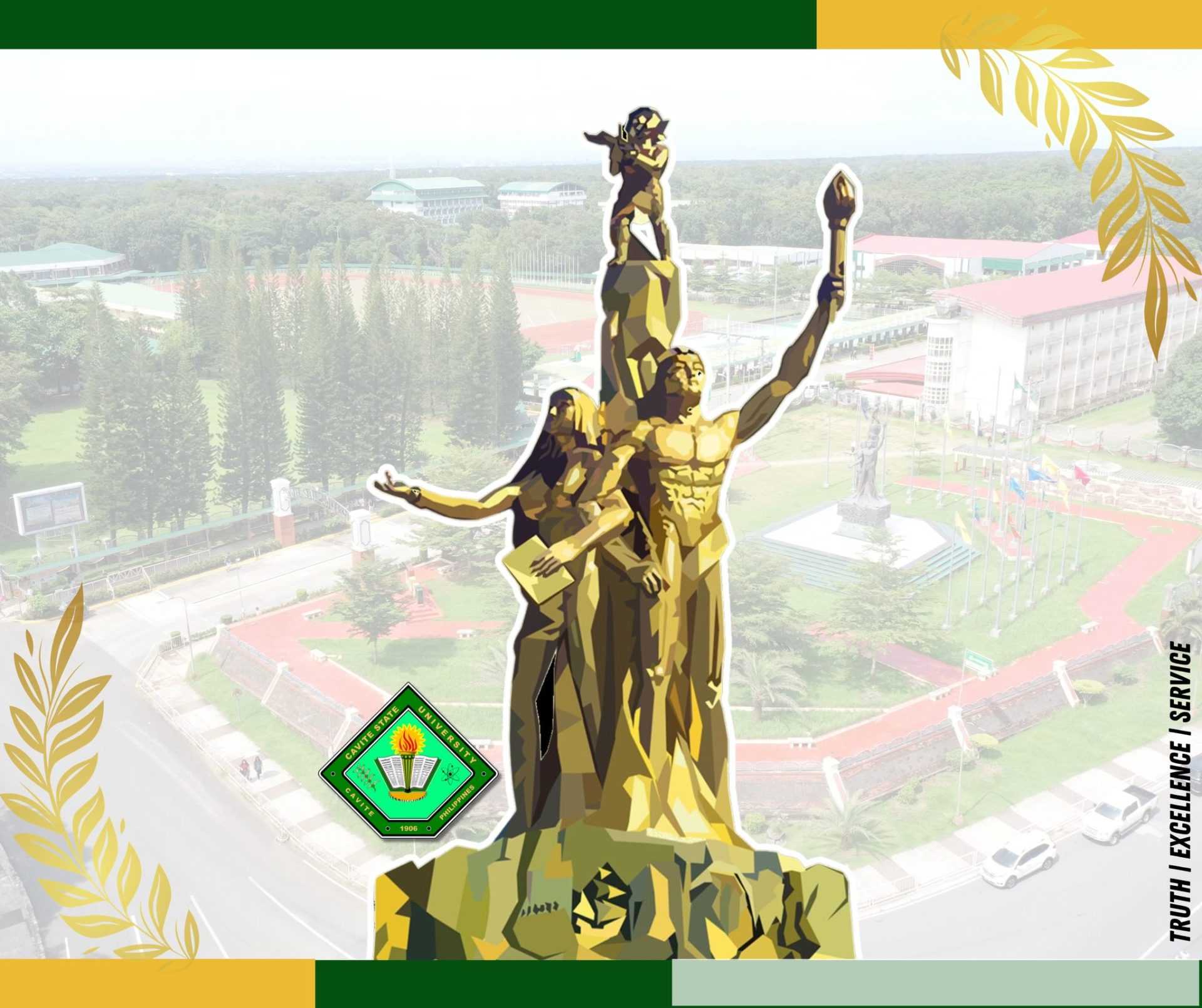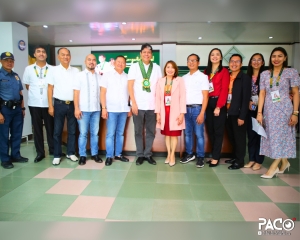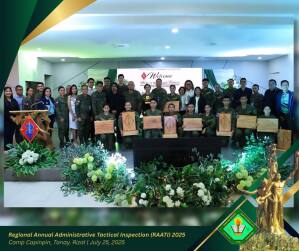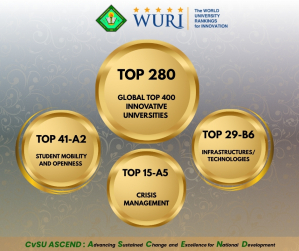![]()
In its pursuit to deepen the public understanding on the Sexual Orientation, Gender Identity and Expression (SOGIE), the Cavite State University (CvSU) through the Gender and Development Resource Center (GADRC), successfully conducted the webinar “Bahaghari: Discovering SOGIESC and LGBTQIA+ Voices” on June 17, 2025, via Zoom video conferencing and Facebook Live.
The webinar aims to define the terms related to sexual orientation, gender identity, and expression; differentiate between sexual orientation and gender identity; recognize common mental health concerns in the LGBTQIA+ community; and develop empathy and respect for the experiences and identities of LGBTQIA+ individuals.
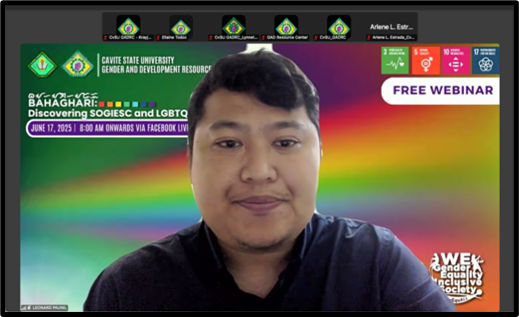
Mr. Leonard V. Paunil, Vice President of CvSU MOVE KATROPA and Faculty Member at CvSU Carmona Campus, led the first discussion on the topic “Understanding SOGIE.”
His presentation focused on defining key terminologies related to SOGIE. He emphasized that SOGIE is not exclusive to the LGBTQIA+ community; rather, it applies to everyone, regardless of identity. He also addressed common gender-related issues faced by the LGBTQIA+ community, including prejudice, violence, abuse, harassment, and discrimination. During his discussion, he strongly emphasized that SOGIESC (Sexual Orientation, Gender Identity and Expression, and Sex Characteristics) should never be a basis for unequal treatment or discrimination. He encouraged everyone to approach the topic with an open mind, deepen their understanding, find meaning in diverse experiences, and ultimately become advocates for inclusivity and positive change.
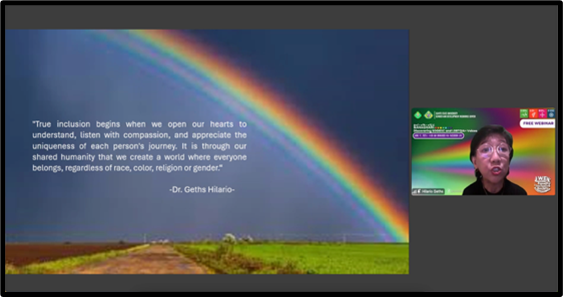
The second topic, “Mental Health Concerns of the LGBTQIA+ Community,” was discussed by Dr. Marie Gethsemanie P. Hilario, an Associate Professor at De La Salle University–Dasmariñas.
She noted that individuals in this community often experience chronic stress, especially when subjected to derogatory labels or discriminatory behavior. This phenomenon, known as minority stress, contributes significantly to the challenges LGBTQIA+ individuals face in coping with societal pressures. She emphasized that addressing these mental health concerns requires a multi-faceted approach—including efforts in education, family, schools, workplaces, organizations, and legal systems. She encouraged everyone to empower individuals to embrace their authentic selves, promote self-awareness and acceptance, and help them feel confident in expressing their identity, beliefs, and values. Most importantly, she highlighted the need to create safe spaces—inclusive, supportive, and open-minded communities where individuals feel accepted and valued.
